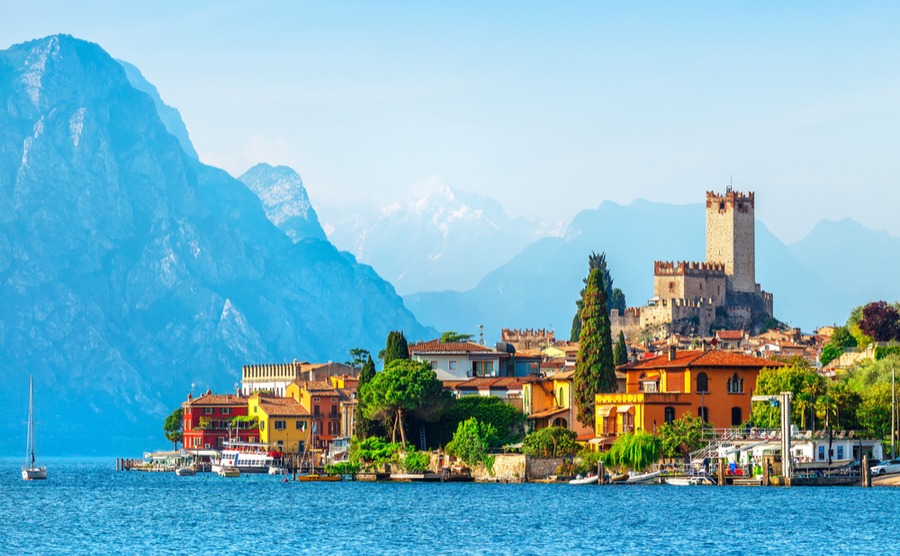What would you ask an overseas property expert? We’ve had a busy year of international property shows – the Luxury Property Show, Your Overseas Home, the France Show, and others – and our roving editor Richard Way has sat on dozens of panels. Here are what potential buyers are asking, and the answers.
The upcoming Your Overseas Home show in Epsom next weekend and The Luxury Property Show in Olympia London this week, are ideal opportunities to quiz property experts about buying or moving abroad. In case you can’t make it to either, here we answer five common questions raised at previous shows in 2019. If you are attending either event, don’t miss your chance to raise any other queries you have about an overseas property purchase.
Ready to buy in 2020? Download your free guide to planning your viewing trip.
Could ‘no deal’ still happen and what would it mean for my retirement?
There are still lots of unknowns surrounding Brexit and how it will affect UK nationals moving to an EU country. Until we leave the EU, with or without a deal, nothing is certain! What we can say confidently is that Brits will continue to be able to buy property freely in Europe and in most cases move there.

You can still buy here, even after no deal
UK nationals relocating after Brexit will lose their automatic right to residency abroad becoming a resident in an EU country will likely involve extra paperwork and the process of getting a temporary permit before upgrading to long-term residency – much the same non-Europeans, including Norwegians, Australians, Americans, Swiss, must do now. For existing expats, most EU countries have pledged to maintain the current rights of resident British nationals after Brexit so long as the UK reciprocates towards their own nationals in Britain – this is pivotal in how things pan out. Key to it all is getting yourself registered for a residence permit in your new country as soon as circumstances allow you to.
What should I be doing about inheritance and my will?
In most cases, solicitors will advise expats to make a local will to deal with their assets in their country of residence. You can keep a separate UK will to deal with any UK assets you still have. Inheritance (succession) laws vary by country, with some countries implementing forced heirship rules, so as an expat you should always check your individual situation. Check with a solicitor what measures need to be in place for you to be able to pass on your estate to your chosen heirs and how to minimise inheritance tax. It may be possible to opt for UK succession law to apply in your foreign will, thanks to the European Succession Regulation ‘Brussels IV’. Ask your advisor about the implications on inheritance tax of remaining ‘domiciled’ in the UK.
We can retire to Portugal and pay very little tax: true or false?

Don’t put your new life on hold!
In principle, yes. Portugal has something called the Non-Habitual Resident (NHR) scheme, which enables qualifying foreign citizens who move to the country to receive most types of foreign-sourced income completely free of Portuguese taxation for ten consecutive years. The scheme also extends to foreigners who relocate to work in specially designated ‘high value-added’ professions, whereby they pay income tax at a flat rate of 20 per cent.
How could exchange rate changes affect my purchase?
When you buy an overseas property, it’s likely you’ll need to exchange sterling funds into a foreign currency and transfer those funds abroad to complete the property transaction. Make it a rule not to ask your high street bank to make your foreign currency transfers – instead use currency specialist. We recommend Smart Currency Exchange, who lead in every category for currency services on Trustpilot.
The important thing to remember is that due to fluctuating exchange rates the price in sterling of your property will fluctuate, unless you take action
The important thing to remember is that due to fluctuating exchange rates the price in Sterling of your property will fluctuate, while the agreed purchase price in the local currency, eg euros, remains the same. Unless you take action, that is. A useful tool for minimising this exposure and bring peace of mind during your purchase is a forward contract. With a small deposit you can fix an exchange rate for some or all of the required amount of currency for your purchase. Most people do this immediately they have had an offer accepted, without the need for transferring the balance for the currency transfer until completion day. Speak to Smart Currency Exchange for more information.
Don’t risk losing your property due to currency volatility. Find out how to lock in your rate in the free Property Buyer’s Guide to Currency.
Can I get a cheap mortgage in Europe?
In short yes! There are some very attractive deals, both for non-resident foreigners and expats. The European Central Bank’s Euribor, to which European banks peg mortgage rates, is lingering in negative territory while on the whole banks haven’t been as keen to lend to foreigners since before the 2008 crash. In Spain, recent regulatory have made application costs cheaper too.
Non-resident buyers can expect to be offered 70% loan to values (LTV) in popular countries, sometimes more. Mortgage terms tend to be between 10 and 20 years, often with fixed rates for the duration. Early redemption are often minimal too.
It’s advisable to use a mortgage broker that specialises in helping foreigners. They’ll not only match you to the most responsive lender but help you navigate the application process. And the agreements brokers have with banks tend to be exclusive or at least as competitive as anything else you might find on the open market.

